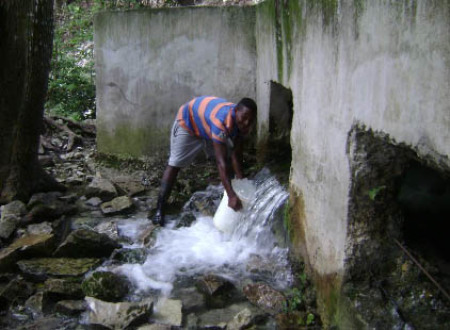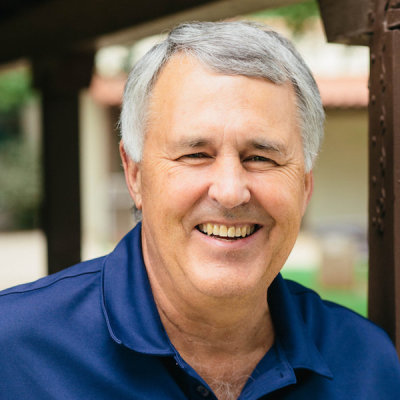What the Arizona Sweat Hawgs Learned About Community Transformation

When a church group called the "Sweat Hawgs" (not surprising, they're based in Arizona) expressed the desire to help people out of poverty around the world, what happened to their own world surprised them.
"Once I began to understand the biblical view of community transformation — changing hearts and minds and empowering people to take sustainable steps to overcome their own poverty — I realized I was the one who was broken, not the community," says Doug Geist. "I was the one living in poverty."

Tedd Jones, a member of Believers Church in Chesapeake, Virginia, discovered something similar. When he read the Parable of the Talents, he sensed God leading him toward a new project. In this story from the Gospel of Matthew, Jesus implores his followers to wisely invest and multiply what God had given them. Jones and his wife wondered how to responsibly increase the fruits of their financial donations in response to Jesus' call.
So as Jones read the Parable of the Talents aloud to his small group at church, he tried an experiment.
He laid out unmarked envelopes containing between $10 and $50. He challenged anyone who took an envelope to multiply the funds by using their own "talents".
"Our goal was to double the money, just like what the good and faithful servant in the parable had done," he said.
One participant purchased paints and a canvas and sold his painting on eBay. Another used the funds to purchase groceries and had a bake sale. In less than four weeks, the group had tripled their funds. They were able to pay for donated goats, school supplies, mosquito nets, and more to families living in poverty around the world through the Food for the Hungry (FH) gift program.
Jones expanded the Parable Project church-wide. Eleven small groups signed up and put their "talents" to the test. This time, dividing $3,000 into small amounts they had $14,000 after six weeks, which helped fund FH water projects — capping springs, digging wells and installing roof water catchment systems that provide safe drinking water and prevent disease.
Sometimes the surprise isn't what we achieve "over there", but what we achieve here in our heads and hearts. When the Arizona Sweat Hawgs starting working with a Dominican Republic community, Doug Giest says he started thinking about the tendency in mission work to think we know more than the people we are helping. He learned one of the most important lessons of effective foreign assistance.
"I had the typical American attitude that financial resources would fix their problem," said Geist. "All it takes is money! Sadly, our team displayed an attitude of superior education and knowledge. We wanted to show them what they needed to do to fix their problem! It was the typical American prideful, god complex."
Church members at Harbor of Hope in North Chelmsford, Massachusetts decided they "wanted a continuous relationship, not just a mission trip to a location one year, followed by a trip to somewhere entirely new [the] next year," church leader, Rich Lescarbeau, told us. They came to FH because our staff is on the ground every day, working with communities to define key needs and build long-term, sustainable solutions. We worked with Harbor of Hope to identify a community that would be a good fit. The church team traveled to El Mirador, also in the Dominican Republic, to visit the children they would potentially sponsor, and meet our year-round FH staff, local church leaders, community leaders and families. Once the team experienced the work happening on the ground in El Mirador, they say they discovered their global church family.
FH finds that many of our American church partners are as transformed as the global communities with which we work. Harbor of Hope made a church-wide commitment, built teams to sponsor children, and people signed up for mission trips. They did so with humility. It's the lesson Arizona's Sweat Hawgs learned, the lesson we all learn, in this kind of work,
"We fully acknowledge that God is already working in El Mirador," Rich said. "We are just coming to join with what is already happening."





















